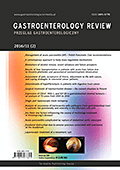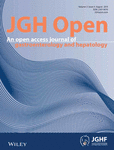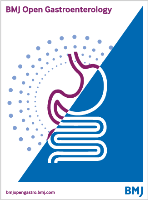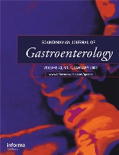
GASTROENTEROLOGY CLINICS OF NORTH AMERICA
Scope & Guideline
Pioneering Insights for a Healthier Digestive Future
Introduction
Aims and Scopes
- Intestinal Transplantation and Related Research:
The journal has a significant focus on intestinal transplantation, exploring various aspects such as immunosuppression, organoid strategies, and the challenges associated with transplantation in diverse populations. - Microbiota and Metabolic Interactions:
Research on the metabolic regulation of microbiota and its interactions with host tissues is a core area. This includes studies on the gut microbiome's role in health and disease, particularly in relation to obesity and inflammatory bowel diseases. - Innovative Surgical Techniques and Approaches:
The journal highlights advancements in surgical techniques related to gastrointestinal diseases, including endoscopic methods, management of surgical complications, and innovative approaches to bariatric surgery. - Pediatric Gastroenterology:
There is a strong emphasis on pediatric gastroenterology, addressing conditions such as inflammatory bowel disease and intestinal failure in children, alongside management strategies tailored for this demographic. - Cancer and Dysplasia in Gastrointestinal Tract:
Research related to gastrointestinal cancers, including early detection, management of dysplastic lesions, and the implications of various cancers associated with gastrointestinal diseases, is a prominent theme. - Psychosocial Factors in Gastrointestinal Health:
The journal also explores the psychosocial aspects of gastrointestinal disorders, including the impact of food intolerances and the role of psychological support in managing chronic gastrointestinal conditions.
Trending and Emerging
- Advancements in Intestinal Transplantation:
There is a growing trend towards exploring advancements in intestinal transplantation, including novel strategies and collaborations to overcome challenges in the field, reflecting an increased focus on improving patient outcomes. - Role of the Microbiome in Health and Disease:
Research on the gut microbiome is rapidly gaining traction, with studies examining its influence on metabolic diseases and interactions with host physiology. This trend highlights the importance of microbiota in gastrointestinal health. - Integration of Psychological and Behavioral Health in Gastroenterology:
An emerging theme is the integration of psychological and behavioral health considerations into the treatment of gastrointestinal disorders, recognizing the significance of mental health in managing chronic conditions. - Innovative Approaches to Obesity Management:
The journal is increasingly focusing on innovative approaches to managing obesity, including pharmacotherapy, surgical interventions, and lifestyle-based strategies, reflecting the growing public health concern surrounding obesity. - Personalized Medicine in Gastroenterology:
There is a notable shift towards personalized medicine approaches, with research exploring tailored treatment plans based on genetic, metabolic, and microbiome profiles, enhancing the effectiveness of interventions in gastrointestinal diseases.
Declining or Waning
- Traditional Dietary Interventions for Gastrointestinal Disorders:
There has been a noticeable reduction in the focus on traditional dietary interventions for gastrointestinal disorders, as newer research emphasizes more integrated approaches involving microbiome studies and personalized nutrition. - General Infectious Gastroenterology:
The frequency of papers specifically addressing infectious gastroenterology topics, such as viral and bacterial gastroenteritis, seems to be decreasing, possibly due to a shift towards chronic conditions and long-term management strategies. - Basic Pathophysiology of Common Gastrointestinal Conditions:
There is a waning interest in publishing basic pathophysiological studies of common gastrointestinal conditions, as the journal increasingly prioritizes clinical applications and innovative treatment strategies. - Gastrointestinal Disorders in the Elderly:
Research specifically targeting gastrointestinal disorders in the elderly population appears to be less frequent, potentially overshadowed by broader studies on chronic diseases affecting diverse age groups. - Historical Perspectives on Gastrointestinal Diseases:
The journal has shifted away from publishing historical perspectives or reviews of past practices in gastroenterology, focusing instead on contemporary research and future directions.
Similar Journals

Gastroenterology Review-Przeglad Gastroenterologiczny
Fostering Dialogue and Discovery in Digestive DisordersGastroenterology Review-Przeglad Gastroenterologiczny is a premier, peer-reviewed journal published by TERMEDIA PUBLISHING HOUSE LTD, focusing on the dynamic field of gastroenterology. Since its inception in 2006, it has embraced an Open Access model, ensuring that the latest research is readily accessible to a global audience, fostering collaboration and innovation. Based in Poland, this journal serves as a crucial platform for disseminating significant findings in gastrointestinal research, with a current Scopus rank placing it at the 39th percentile in its category. With a commitment to advancing the understanding of gastroenterological conditions, *Gastroenterology Review* publishes original articles, reviews, and case studies that contribute to both clinical practice and academic research. The journal is particularly aimed at researchers, healthcare professionals, and students who ignite dialogues that shape the future of gastrointestinal health. Explore the comprehensive insights that this journal offers, as it encapsulates vital developments from 2008 to 2024 in the ever-evolving landscape of gastroenterology.

Visceral Medicine
Transforming Insights into Practice in Visceral MedicineVisceral Medicine is a distinguished journal published by KARGER, specializing in the fields of gastroenterology and surgery. With an ISSN of 2297-4725 and an E-ISSN of 2297-475X, this journal has secured its place in the academic landscape since its inception in 2016, maintaining a consistent quality of research and fostering advancements in visceral health through the year 2024. With notable rankings within the 2nd quartile (Q2) for both gastroenterology and surgery categories, Visceral Medicine ranks #101 out of 551 in the Medicine & Surgery category and #67 out of 167 in Gastroenterology according to Scopus, reflecting its significant impact and relevance in the pursuit of scientific knowledge. Despite not being an open access journal, it provides valuable insights and original research aimed at professionals, researchers, and students keen on expanding their understanding of visceral diseases and innovative surgical techniques. The journal is headquartered in Basel, Switzerland, contributing to its reputation as a hub for high-quality scholarly communication within the medical community.

Korean Journal of Gastroenterology
Advancing Knowledge in Gastrointestinal HealthKorean Journal of Gastroenterology (ISSN: 1598-9992, E-ISSN: 2233-6869), published by the Korean Society of Gastroenterology, has been a premier outlet for research and advancements in the field of gastroenterology since its inception in 1968. This open-access journal, based in South Korea, fosters a global dialogue on gastrointestinal health, embracing contributions from a diverse array of disciplines within medicine. It is currently ranked in the Q4 quartile for miscellaneous medicine and holds a Scopus rank of #323 out of 636 in general medicine, reflecting its commitment to publishing impactful research despite its relatively recent establishment in high-impact metrics. With a continuous publication timeline extending through to 2024, the journal aims to enhance understanding of gastrointestinal disorders and promote innovative treatments, making it an essential resource for researchers, clinicians, and students alike who seek to stay abreast of the latest developments and clinical applications in gastroenterology.

JGH Open
Connecting Researchers, Transforming OutcomesJGH Open is a prominent open-access journal dedicated to advancing knowledge in the fields of Gastroenterology and Hepatology, published by WILEY. Since its inception in 2017, the journal has served as a crucial platform for researchers, professionals, and students to disseminate innovative research findings and clinical insights. With an impact factor and Scopus rankings reflecting its steady growth—ranking in the 3rd quartile for both Gastroenterology (Q3) and Hepatology (Q3)—JGH Open is positioned within the competitive landscape of medicine. Its commitment to open access enhances the visibility and accessibility of high-quality research, ensuring that significant advancements in understanding diseases of the gastrointestinal tract and liver reach a broad audience. With a focus on collaboration and dissemination of knowledge, JGH Open aims to contribute to the global discourse and improve outcomes in gastrointestinal health.

JOURNAL OF PEDIATRIC GASTROENTEROLOGY AND NUTRITION
Innovating approaches to pediatric gastrointestinal health.Journal of Pediatric Gastroenterology and Nutrition is a premier academic journal published by Wiley, focusing on the critical intersection of pediatric gastroenterology and nutrition. Established in 1982, this journal has been at the forefront of research and clinical practices for over four decades and continues to contribute invaluable insights to the fields of pediatrics and gastrointestinal health, boasting a Q1 ranking in Pediatrics, Perinatology and Child Health and a Q2 ranking in Gastroenterology as of 2023. The journal features a comprehensive array of original research, review articles, and clinical studies aimed at improving the understanding and management of pediatric gastrointestinal disorders and nutrient imbalances. Edited with expertise, the Journal of Pediatric Gastroenterology and Nutrition serves as an essential resource for clinicians, researchers, and students dedicated to advancing the well-being of children with digestive health issues. Readers can access the journal's impactful research studies through traditional subscriptions.

BMJ Open Gastroenterology
Leading the Way in Innovative Gastroenterological ResearchBMJ Open Gastroenterology is a premier open access journal published by the esteemed BMJ Publishing Group, focusing on the dynamic and evolving field of gastroenterology. Established in 2014, the journal has rapidly ascended in stature, reflected in its impressive 2023 Q1 ranking in gastroenterology and its position within the top 25% of journals in the category according to Scopus. With a mission to disseminate high-quality, peer-reviewed research with global significance, the journal provides a vital platform for researchers, professionals, and students alike to share their findings and advancements in gastrointestinal medicine. Operating from its headquarters in London, England, the journal's open access format ensures wide visibility and accessibility of cutting-edge research, making it an invaluable resource for those dedicated to improving patient care and driving innovation in gastroenterological sciences. By engaging with this journal, contributors and readers can stay at the forefront of critical developments in the field, fostering a collaborative environment for knowledge exchange.

United European Gastroenterology Journal
Advancing knowledge in gastroenterology and oncology.The United European Gastroenterology Journal, published by John Wiley & Sons Ltd, is a leading publication in the fields of gastroenterology and oncology, boasting a distinguished Q1 ranking in both categories for 2023. With an ISSN of 2050-6406 and an E-ISSN of 2050-6414, this journal serves as a vital platform for disseminating cutting-edge research and innovative practices from 2013 to 2024, supporting the advancement of knowledge in gastrointestinal health and cancer treatment. With a commendable Scopus Rank of 14th out of 167 in gastroenterology and 54th out of 404 in oncology, it emphasizes the significance of impactful research in these critical areas. While currently not an open-access journal, it remains a vital resource for researchers, professionals, and students seeking comprehensive insights and evidence-based approaches to improve patient care and clinical outcomes. The United European Gastroenterology Journal is committed to bridging the gap between research and practice, making it an essential reference for those dedicated to the fields of gastroenterology and oncology.

SCANDINAVIAN JOURNAL OF GASTROENTEROLOGY
Elevating Standards in Gastroenterology Through Scholarly InquirySCANDINAVIAN JOURNAL OF GASTROENTEROLOGY, published by Taylor & Francis Ltd, is a leading journal in the field of gastroenterology, dedicated to advancing clinical and experimental research related to digestive health. With an ISSN of 0036-5521 and an E-ISSN of 1502-7708, this journal provides a platform for high-quality research that addresses the complexities of gastrointestinal diseases. Since its inception in 1966, the journal has consistently contributed valuable insights and is currently categorized in the Q2 quartile of gastroenterology journals, reflecting its impact and relevance in the field, with a Scopus rank of 87 out of 167 in Medicine - Gastroenterology. Researchers and practitioners are encouraged to explore the journal's archives to enhance their understanding and stay abreast of innovative strategies for managing gastrointestinal disorders. The SCANDINAVIAN JOURNAL OF GASTROENTEROLOGY remains a crucial resource for those committed to improving patient outcomes through rigorous scientific inquiry and the sharing of impactful findings.

WORLD JOURNAL OF GASTROENTEROLOGY
Elevating research in gastrointestinal medicine.WORLD JOURNAL OF GASTROENTEROLOGY, published by BAISHIDENG PUBLISHING GROUP INC, stands at the forefront of gastrointestinal research, providing a critical platform for the dissemination of high-quality studies in the field. With an impressive impact factor reflected in its Q1 rankings in both Gastroenterology and Miscellaneous Medicine, this journal is recognized for its rigorous peer-review process and commitment to advancing knowledge and practices related to digestive health. Covering comprehensive scopes from clinical advancements to innovative therapies, the journal serves an essential role for researchers, clinicians, and students, enabling them to stay updated on the latest developments and findings from 1998 through 2024. The open access model facilitates broader accessibility, ensuring that groundbreaking research reaches a global audience. The journal's ranking within the top 15% of Scopus demonstrates its significant contribution to the academic community, making it a valuable resource for advancing the science of gastroenterology.

Translational Gastroenterology and Hepatology
Fostering Global Collaboration in Gastrointestinal Science.Translational Gastroenterology and Hepatology, published by AME Publishing Company, stands as a pivotal platform for advancing the understanding and treatment of gastrointestinal and liver diseases. With its focus on translational research, this journal aims to bridge the gap between laboratory discoveries and clinical applications, thus fostering improvements in patient care. Although specific metrics like H-Index and Scopus ranks are currently unavailable, the journal is committed to maintaining high standards of scholarly communication and excellence. As an open-access publication, it ensures that valuable findings are readily accessible to a global audience, promoting collaboration and innovation among researchers, clinicians, and healthcare professionals invested in gastroenterology and hepatology. The journal's dedication to disseminating groundbreaking research makes it an essential resource for those seeking to stay at the forefront of these ever-evolving fields.